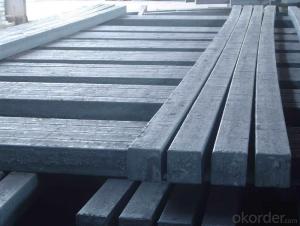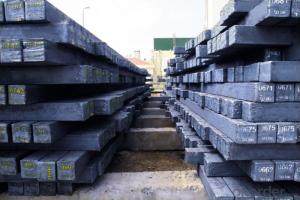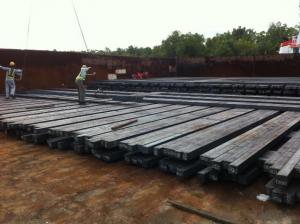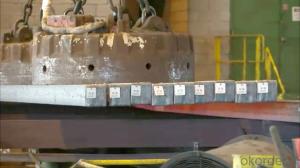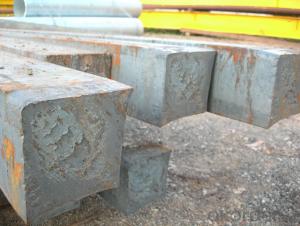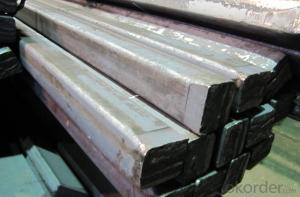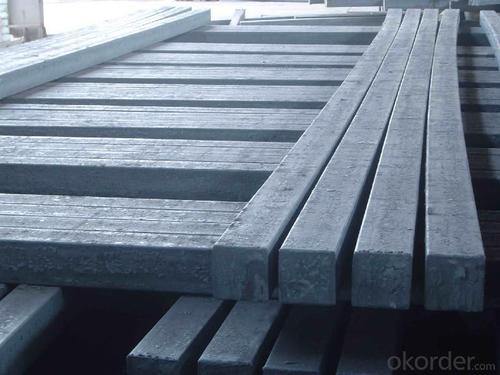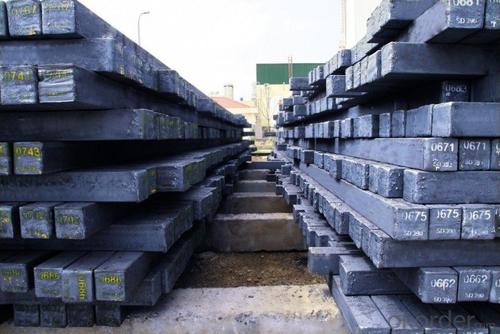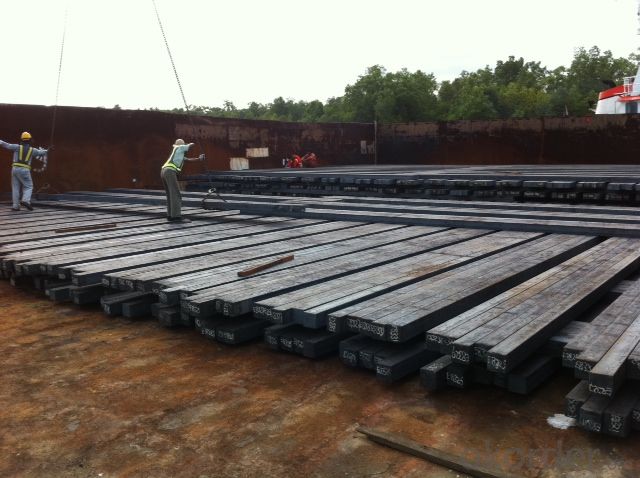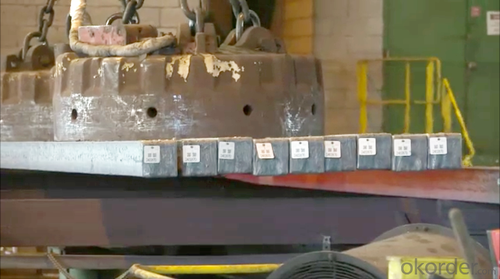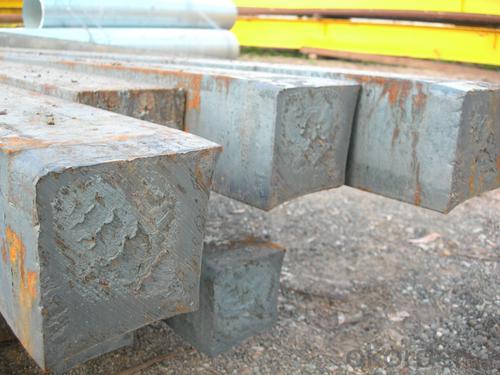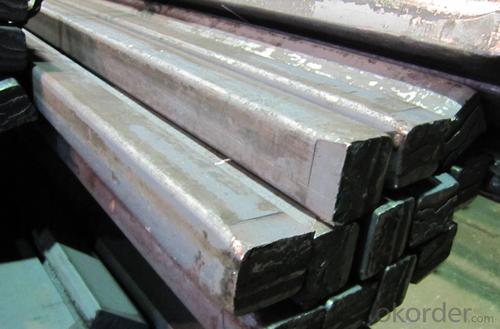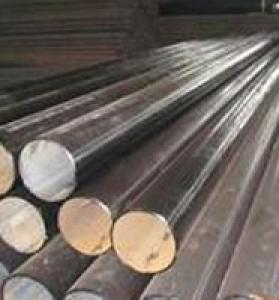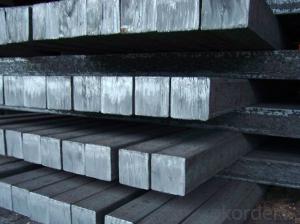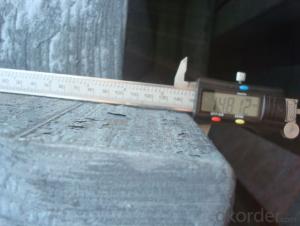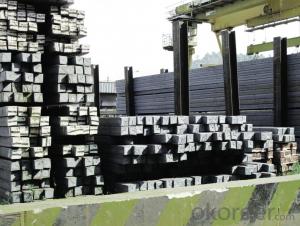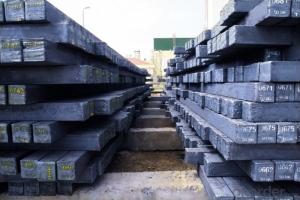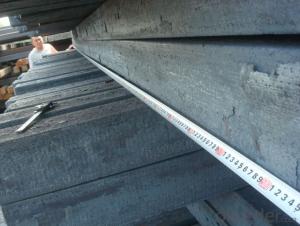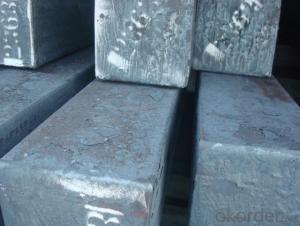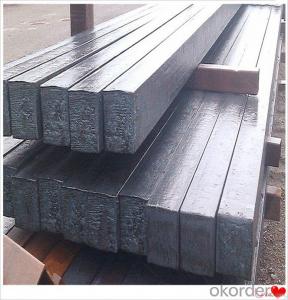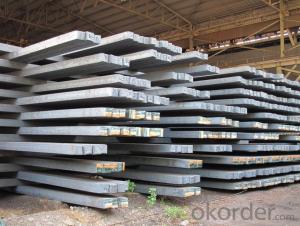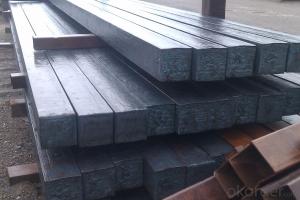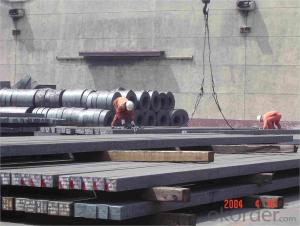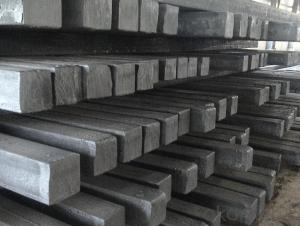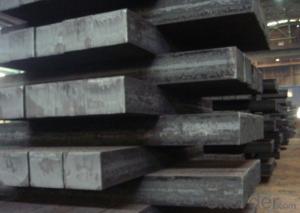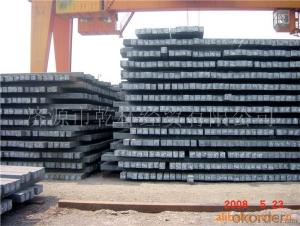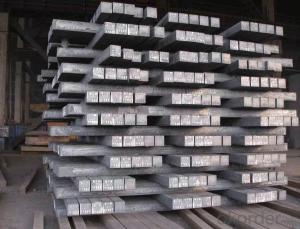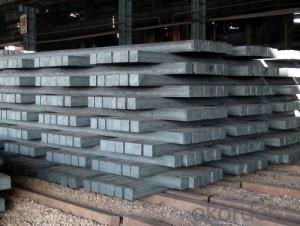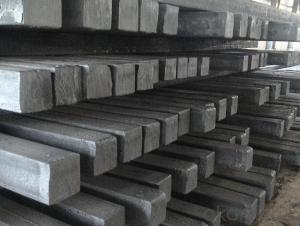Q235/3SP 145MM Blast Furnace Hot Rolled Steel Billet
- Loading Port:
- Tianjin
- Payment Terms:
- TT OR LC
- Min Order Qty:
- 2000 m.t.
- Supply Capability:
- 30000 m.t./month
OKorder Service Pledge
OKorder Financial Service
You Might Also Like
Description of Q235/3SP 145MM Blast Furnace Hot Rolled Steel Billet
Our hot dip galvanised steels consist of a steel substrate with a metallic zinc coating applied by means of a continuous hot dip galvanising process. Metallic zinc coatings are available in steel grades ranging from steel for bending and deep drawing applications, to structural steels and high yield strength steels.
A glossy surface finish obtained under specific skin-pass conditions (either non-skin-passed or skin- passed with smooth cylinders to obtain low roughness) can be provided if required at time of enquiry.
Advantage of Q235/3SP 145MM Blast Furnace Hot Rolled Steel Billet
Uncoated CR steel sheet With the features of in line with the international highest standards in demension and shape, excellent surface finish and properties, the products are mainly used in home appliance and automobile industries.
Galvanized steel sheet(include HDG and EG)
With the features of good corrosion resistance, the products are mainly used in automobile, home appliance, electronics, building and machinery manufacture industries, etc.
Precoated steel sheet With the features of enviromental protection and good processablility, long lasting surface durability, rich in colors, the products are maily used in building, home appliance and furniture industries, etc.
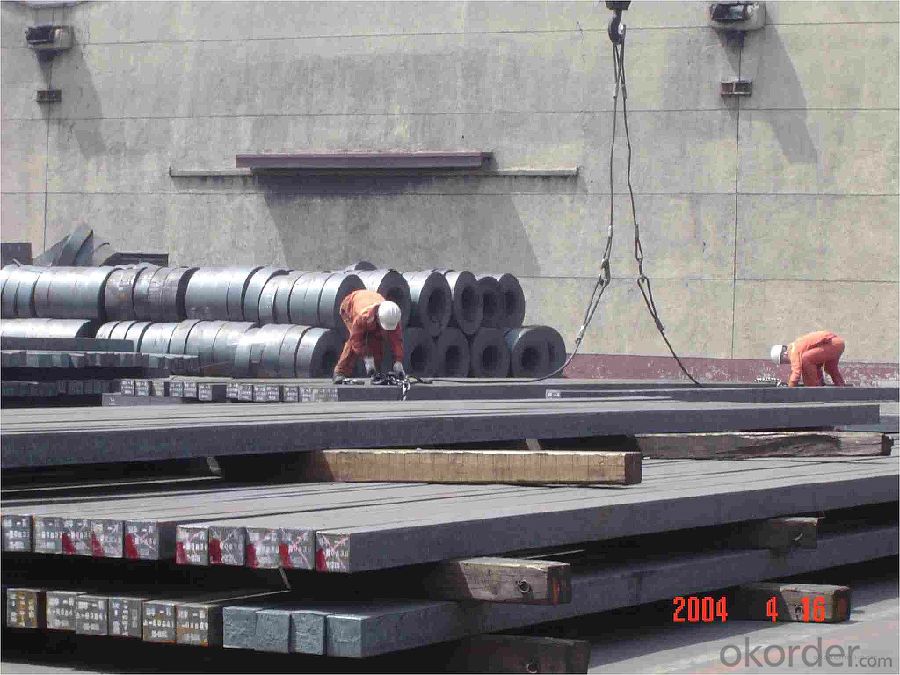
Applications of Q235/3SP 145MM Blast Furnace Hot Rolled Steel Billet
Our hot dip galvanised steels can be used in a very wide range of applications for industrial markets, both indoors and outdoors. Some of the most common applications are:
Building: wide sections for roofing and cladding, doors, door frames, metallic ceilings, partitions, structural members etc
Domestic appliances: all appliances for this sector (both white and brown goods) are manufactured with hot dip galvanised steels
Miscellaneous: electrical cabinets, aeraulic components, air conditioners, road signs etc
Zinc hot dip galvanised steel is suitable for contact with foodstuffs under certain conditions, as specified in European directive 89/109/EEC and French standard NF A 36-712-1. Please contact us for further information on this subject.
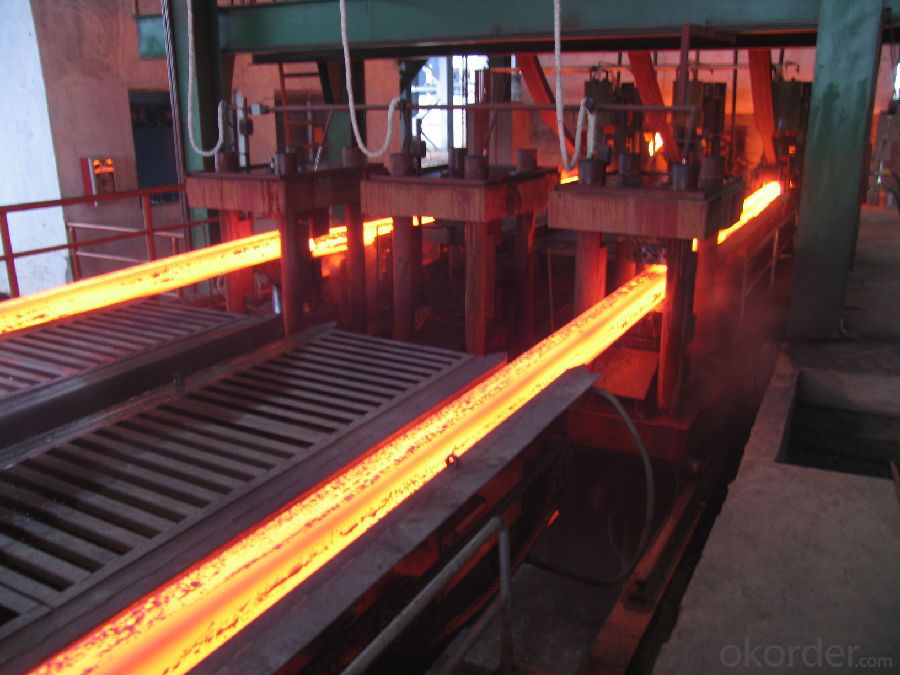
Specifications of Q235/3SP 145MM Blast Furnace Hot Rolled Steel Billet
Quality | Q/BQB 440-2003 | JIS G3312-1994 JIS G3321 | EN 10326-2004 | ASTM A653-02a |
EN 10327-2004 | (BASE PLATE) | |||
(BASE PLATE) | ||||
Commercial Steel | DC51D | SGCC SGLCC | DX51D+Z DX51D+AZ | CS Type A/B/C |
Forming Steel | St01,St02,St03 | SGCD1 SGLCD1 | FS Type A, Type B | |
Drawing | DC52D /DC53D | - | DX52D+Z DX52D+AZ | DDS TYPE A/C |
Steel | DX53D+Z DX53D+AZ | |||
Structural | S280GD (StE28) | SGC400 SGLC400 | S280D+Z DX54D+AZ | SS275 |
Steel | S350GD (StE34) | SGC440 SGLC440 | S350D+Z S350D+AZ | SS340 Class1 |
FAQ of Q235/3SP 145MM Blast Furnace Hot Rolled Steel Billet
We have organized several common questions for our clients,may help you sincerely:
1. How Can I Visit There?
Our company is located in Tianjin City, China, near Beijing. You can fly to Tianjin Airport Directly. All our clients, from home or aboard, are warmly welcome to visit us!
2. How Can I Get Some Sample?
We are honored to offer you sample.
3. Why choose CNBM?
Our delivery time about 15-20days for standard sizes, if you have other requirements like hardness, quanity and width ,it is about 20-40days. But don't worry we also try our best for the delivery time ,because time longer and our cost is higher.
- Q: What are the main factors affecting the machined surface quality of steel billets?
- There are several main factors that significantly affect the machined surface quality of steel billets. These factors include: 1. Cutting Speed: The cutting speed, which is the speed at which the tool moves across the surface of the billet, plays a crucial role in determining the surface quality. Higher cutting speeds can lead to increased heat generation, which can cause thermal damage to the surface and result in poor quality. Therefore, finding the optimal cutting speed is essential for achieving a high-quality machined surface. 2. Feed Rate: The feed rate refers to the rate at which the tool advances into the material during the machining process. A high feed rate can lead to excessive tool wear, resulting in poor surface quality. On the other hand, a low feed rate may cause chatter or vibration, causing surface irregularities. It is crucial to find the right balance to ensure a smooth and high-quality machined surface. 3. Tool Geometry: The geometry of the cutting tool, including its shape, angle, and edge sharpness, plays a significant role in determining the surface quality. The tool geometry affects the chip formation and the interaction between the tool and the billet. Proper tool geometry can minimize cutting forces, reduce vibration, and improve chip evacuation, resulting in a better surface finish. 4. Cutting Fluid: The choice and application of cutting fluids can greatly influence the surface quality of machined steel billets. Cutting fluids serve multiple purposes, including cooling the tool and workpiece, lubricating the cutting process, and flushing away chips. Appropriate cutting fluid selection and application can help in reducing friction, heat generation, and tool wear, leading to improved surface quality. 5. Billet Material and Hardness: The material composition and hardness of the steel billet also impact the machined surface quality. Different steels have varying levels of machinability, with some being more prone to issues like work hardening or built-up edge formation. Harder materials generally require more robust cutting tools and specific machining techniques to achieve desired surface quality. 6. Machine Rigidity and Stability: The rigidity and stability of the machine used for machining the steel billets are critical factors affecting the surface quality. Any machine tool deflection or vibration can lead to poor surface finish and dimensional accuracy. Therefore, it is essential to ensure proper machine setup, alignment, and maintenance to minimize unwanted vibrations and maximize surface quality. Overall, a combination of the above factors, along with proper cutting parameters and machining techniques, is necessary to achieve a high-quality machined surface on steel billets. Adjusting these factors based on the specific characteristics of the billet and desired surface finish can help optimize the machining process and improve the overall quality of the final product.
- Q: How are steel billets used in the manufacturing of industrial pumps?
- Industrial pumps rely on steel billets as a primary material for the production of different pump components. These billets, typically made of high-quality steel, serve as the initial raw material for forging or casting processes. To begin with, pump casings are produced using steel billets. The billets are shaped through forging or casting techniques to form the outer shell of the pump. This casing ensures structural integrity and contains the fluid being pumped. Moreover, steel billets are employed in the manufacturing of impellers, which play a crucial role in industrial pumps. Impellers are responsible for generating the force required to move the fluid through the pump. The billets undergo machining, shaping, and polishing to achieve the intricate design of the impeller, ensuring optimal fluid flow and efficiency. Additionally, steel billets are utilized in the production of shafts and other critical pump components. These components must possess high strength and durability to endure the demanding conditions of industrial applications. By utilizing steel billets, manufacturers can guarantee the necessary mechanical properties, such as resistance to corrosion, wear, and high temperatures. In conclusion, steel billets hold immense significance in the manufacturing of industrial pumps. They serve as the initial material for various pump components, including casings, impellers, shafts, and more. By utilizing high-quality steel billets, manufacturers can create durable and efficient pumps that meet the rigorous requirements of industrial applications.
- Q: What are the main challenges in the supply chain management of steel billets?
- The main challenges in the supply chain management of steel billets include ensuring efficient transportation and logistics, managing inventory levels to avoid stockouts or excess inventory, dealing with fluctuating demand and production uncertainties, maintaining quality standards throughout the supply chain, and effectively collaborating with suppliers and customers to ensure timely delivery and customer satisfaction.
- Q: What are the common alloys used in the production of steel billets?
- The primary alloys utilized in the production of steel billets are mainly carbon and manganese. Carbon is incorporated to boost the steel's hardness and strength, while manganese is included to enhance its toughness and ability to harden. Moreover, smaller quantities of other alloying elements like silicon, nickel, chromium, and vanadium may be introduced to further augment specific properties of the steel, such as resistance to corrosion, heat, or wear. By employing these alloying elements, a diverse array of steel grades with different characteristics can be manufactured, catering to various applications and industries.
- Q: How are steel billets used in the manufacturing of automotive parts?
- Steel billets are used in the manufacturing of automotive parts by being heated and shaped into various forms such as rods, bars, and sheets. These billets serve as the raw material for forging, casting, and machining processes, enabling the production of critical components like engine blocks, crankshafts, suspension systems, and chassis. The high strength and durability of steel make it an ideal choice for automotive applications, ensuring the safety and performance of vehicles.
- Q: How are steel billets used in the manufacturing of pipes and tubes?
- Steel billets are an essential component in the manufacturing of pipes and tubes. These billets, which are typically rectangular or square in shape, serve as the starting point for the production process. They are first heated to a high temperature to make them more malleable and easier to shape. Once heated, the billets are then passed through a series of rollers, where they are gradually formed into a cylindrical shape. This process, known as hot rolling, helps to refine the structure and improve the mechanical properties of the steel. Hot rolling also ensures that the dimensions of the billet are consistent throughout its length. After the initial hot rolling, the billets are further processed through a series of cold rolling and sizing operations. Cold rolling helps to reduce the thickness and improve the surface finish of the billet, while sizing operations ensure that the final product meets the required specifications in terms of diameter, wall thickness, and length. Once the billet has been shaped and sized, it is then cut into specific lengths and welded together to form a seamless or welded pipe or tube. The welding process involves joining the ends of the billets using either electric resistance welding (ERW), submerged arc welding (SAW), or other welding techniques. This helps to create a continuous and strong joint, ensuring the integrity and strength of the pipe or tube. The final step in the manufacturing process involves various finishing operations such as heat treatment, straightening, and inspection. Heat treatment helps to further enhance the mechanical properties of the pipe or tube, while straightening ensures that the final product has a uniform shape and is free from any deformations. Inspection is carried out to ensure that the pipes or tubes meet the required quality standards and specifications. In summary, steel billets play a crucial role in the manufacturing of pipes and tubes. They are transformed through a series of hot and cold rolling processes, welded together, and subjected to various finishing operations to produce high-quality and reliable pipes and tubes.
- Q: How do steel billets compare to other steel products?
- Steel billets are a type of semi-finished steel product that is widely used in various industries. When comparing steel billets to other steel products, there are several key factors to consider. Firstly, steel billets are considered to be more versatile compared to other steel products. This is because they can be easily transformed into various shapes and sizes through different manufacturing processes such as rolling, forging, and extrusion. This versatility makes steel billets suitable for a wide range of applications, including construction, automotive, and manufacturing industries. In terms of strength and durability, steel billets are known for their high tensile strength and excellent resistance to corrosion. This makes them suitable for use in demanding environments and applications where strength and durability are essential. Other steel products may have similar properties, but steel billets are often preferred due to their ability to be customized into specific shapes and sizes. Another important aspect to consider is the cost-effectiveness of steel billets. Compared to fully finished steel products, steel billets are more cost-effective as they require less processing and finishing. This leads to reduced production costs, which can be advantageous for industries seeking to minimize expenses while still maintaining high-quality steel. Additionally, steel billets are also more environmentally friendly compared to other steel products. Since they undergo less processing and finishing, the carbon footprint associated with their production is significantly lower. This aspect is particularly important for industries that prioritize sustainability and aim to reduce their impact on the environment. In conclusion, steel billets offer several advantages when compared to other steel products. Their versatility, high strength, cost-effectiveness, and environmental friendliness make them a preferred choice in various industries. The ability to customize their shape and size, coupled with their durability and resistance to corrosion, further enhances their appeal. Overall, steel billets are a reliable and efficient option for those seeking high-quality steel products.
- Q: What is the typical composition of a steel billet?
- The typical composition of a steel billet can vary depending on the specific grade and intended application. However, in general, a steel billet is primarily composed of iron, carbon, and other alloying elements. Iron is the main component of steel, typically making up around 98% of its composition. It provides the structural strength and durability of the material. Carbon is the second most important element, typically ranging from 0.02% to 2.1%. It plays a crucial role in determining the hardness and strength of the steel. Apart from iron and carbon, steel billets often contain various alloying elements to enhance specific properties. These alloying elements may include manganese, silicon, nickel, chromium, molybdenum, vanadium, and others. Each element contributes to different characteristics such as corrosion resistance, heat resistance, toughness, or machinability. Additionally, steel billets are often produced through processes like continuous casting or hot rolling, which can introduce small amounts of impurities. These impurities can include sulfur, phosphorus, and oxygen, which are typically kept to very low levels to maintain the desired quality of the steel. Overall, the typical composition of a steel billet encompasses a combination of iron, carbon, alloying elements, and minor impurities, which are carefully controlled to achieve the desired mechanical properties and performance for a wide range of applications, such as construction, automotive, aerospace, and manufacturing industries.
- Q: What is the role of steel billets in the manufacturing of hydraulic systems?
- Steel billets play a crucial role in the manufacturing of hydraulic systems. They serve as the raw material that is used to create various components and structures within these systems. Hydraulic systems rely on the use of pressurized fluid to transmit power and control mechanical motion. Therefore, the components within these systems need to be strong, durable, and resistant to corrosion and pressure. Steel billets provide the ideal starting material for manufacturing hydraulic system components due to their exceptional strength and toughness. They are typically made from carbon steel, which offers excellent mechanical properties such as high tensile strength and hardness. These properties ensure that the components can withstand the high pressures and forces experienced within hydraulic systems without deforming or failing. Furthermore, steel billets undergo various manufacturing processes such as forging, machining, and heat treatment to shape them into the desired components. These processes allow for the creation of intricate designs and precise dimensions, ensuring a proper fit and functionality within the hydraulic system. Moreover, steel billets are known for their excellent resistance to corrosion, which is crucial in hydraulic systems due to the presence of fluids and potential exposure to moisture. Corrosion can lead to component failure, leaks, and decreased system performance. The use of steel billets helps prevent such issues, ensuring the longevity and reliability of the hydraulic system. In summary, steel billets are essential in the manufacturing of hydraulic systems as they provide the necessary strength, durability, and corrosion resistance required for the components within these systems. Their versatility and ability to be shaped and processed make them an ideal material choice for creating reliable and efficient hydraulic systems.
- Q: What are the different methods of steel billet surface shot blasting?
- Different industries commonly utilize various methods for shot blasting the surface of steel billets. These methods include the following: 1. Wheel blasting: By using a wheel mechanism, abrasive particles are propelled onto the steel billet's surface. The high-speed rotation of the wheel generates centrifugal force, effectively removing impurities and contaminants. 2. Air blasting: Compressed air is employed to propel abrasive particles onto the steel billet's surface. This high-pressure stream effectively cleans and prepares the surface. 3. Wet blasting: Water is combined with abrasive particles before propelling them onto the steel billet's surface. The addition of water reduces dust and controls heat during the blasting process. Wet blasting is ideal for delicate or controlled surface cleaning. 4. Shot peening: This specialized method enhances the fatigue life and strength of the steel billet's surface. Small steel shots are propelled onto the surface with controlled intensity, creating compressive stresses that prevent crack initiation and propagation. 5. Vacuum blasting: A blast nozzle and vacuum system are utilized in this method. Abrasive particles are propelled onto the steel billet's surface while the vacuum system simultaneously removes spent abrasive particles and loose debris. This ensures a clean and dust-free environment during the blasting process. It's important to consider factors such as the type and condition of the steel billet, desired surface finish, level of contamination, and industry-specific requirements when selecting a method. Each method has its own advantages and limitations, so choosing the appropriate one is crucial for achieving the desired surface quality and cleanliness.
Send your message to us
Q235/3SP 145MM Blast Furnace Hot Rolled Steel Billet
- Loading Port:
- Tianjin
- Payment Terms:
- TT OR LC
- Min Order Qty:
- 2000 m.t.
- Supply Capability:
- 30000 m.t./month
OKorder Service Pledge
OKorder Financial Service
Similar products
Hot products
Hot Searches
Related keywords
